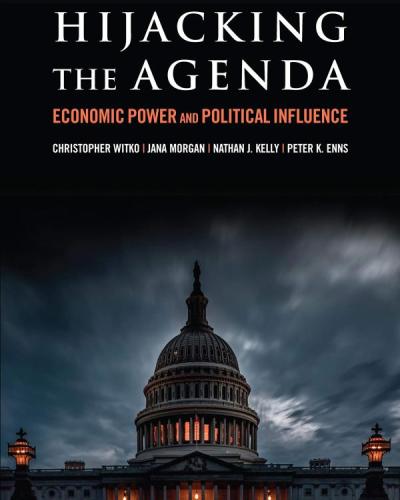 Department Homepage
The College of Arts & Sciences
Department Homepage
The College of Arts & Sciences

Hijacking the Agenda: Economic Power and Political Influence
By Christopher Witko, Jana Morgan, Nathan J. Kelly, and Peter K. Enns
"The authors analyze over 20 years of floor speeches by thousands of members of Congress to examine how campaign contributions and independent expenditures on behalf of candidates help set the national economic agenda. They find that legislators receiving more support from business and other wealthy interests were more likely to discuss the deficit and other upper-class priorities, while those receiving more assistance from unions were more likely to discuss issues important to the lower and middle class, such as economic inequality and wages. This attention imbalance matters because when members of Congress talk about certain issues, their speech is often followed by legislative action. While unions use their resources to push back against wealthy interests, spending by the wealthy dwarfs that of unions, often giving the upper class the upper hand." (Full Description)